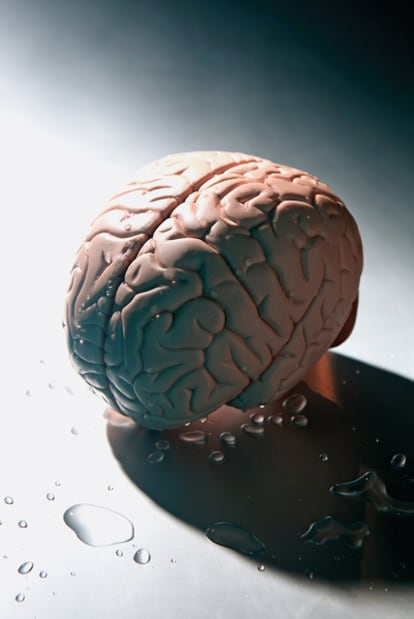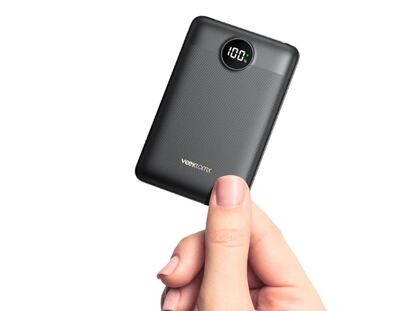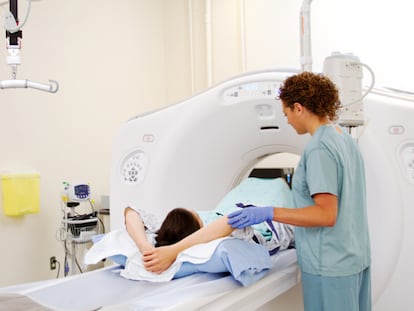"Volition and inhibition: not "free will" but "free won't"
Surprisingly, experimental evidence seems to show that the subjective experience of free will is something of a perceptual illusion and that unconscious mental processes begin some time before we become aware of our intention to act. A milestone piece of research on which this claim is based is that of Benjamin Libet and colleagues, who were studying free will at the beginning of the 1980s. This group asked study participants to press a button as soon as they felt the urge to do so, and at the same time recorded their brain activity from scalp electrodes. It turned out that the subjects' conscious decision to press the button was preceded by the onset of brain electrical activity by a few hundred milliseconds.
This experiment has been replicated very recently using functional magnetic resonance imaging?a technique that allows visualisation of changes in brain activity as a patient performs a task. Tests showed that brain activity in the prefrontal and parietal cortex of the brain determined the outcome of a decision up to 10 seconds before the participant was aware of it.
Other studies have shown that the simple sight of a graspable object appears to activate, to some degree, the region of the brain that controls the body part involved in the potential action, even when the person isn't planning to move. Therefore, cues in our environment may inadvertently trigger potential actions.
If such processes were the source of our voluntary actions, then our nervous system would generate movements on the basis of external inputs and would not just rely on our will. According to this view, the subjective experience of consciously deciding to execute an action could simply be a "side effect" of the brain processes implementing the movement.
However, this hypothesis conflicts with the common experience that, at least to some extent, we can consciously exert control over our actions and inhibit those that we believe are not appropriate. After all, we are able to repress a violent reaction if the context perhaps requires it. For example, we can prevent ourselves from walloping our noisy neighbour (...at least most of the time!). How is it possible that free will might be an illusion but at the same time we are responsible for what we do?
The solution to this apparently unsolvable problem might come from our ability to inhibit "pending" actions. In fact, although awareness of intention appears after the start of an action-related thought process, it still precedes the physical execution of a movement, allowing a person just enough time to withhold the upcoming action if the expected outcome might be inappropriate. It is likely that the basis of our decisions is not "free will" but "free won't".
We therefore usually do not perform all context-driven actions because such reflex responses can be "nipped at the bud" before they manifest. Life would be impossible if we could not prevent ourselves from acting on every trigger in our surroundings. For instance, walking around a kitchen would be a nightmare if we couldn't resist the impulse to grasp and wield any objects within our reach?such as knives, glasses, and pots.
The details of this intriguing scenario are, however, still incomplete. For example, the neural processes underpinning voluntary inhibition and the brain regions involved in this function are only partially known. Their uncovering is the aim of the work that my team is doing in the Department of Neurophysiology at the University of Rome "La Sapienza", Pozzilli, Italy.
We are currently undertaking experiments where we record electrical activity in the brains of epileptic patients who have drug-resistant seizures. These people already have electrodes implanted in their brains to identify epileptogenic regions that subsequently will be surgically removed. During pre-surgical monitoring we test the patients' ability to withhold a planned movement.
First we present a "go" signal on a computer screen that requires the subject to quickly move their hand toward a peripheral target. In one third of the trials, a "stop" signal appears on the screen just after the "go" signal but before the subject can move his or her hand. In the latter case, the subjects are instructed to cancel the planned action. Meanwhile, we record the brain activity from several of the intracranial electrodes. We use this technique to evaluate the changes in electrical activity taking place in different parts of the brain when an action is executed voluntarily or is cancelled.
Potentially these studies will give us fundamental hints as to the processes behind our internal "veto power," and will help us understand the origin of disorders of voluntary action such as obsessive-compulsive disorders or attention deficit-hyperactivity disorder.
Giovanni Mirabella, University of Rome "La Sapienza". www.atomiumculture.eu

Tu suscripci¨®n se est¨¢ usando en otro dispositivo
?Quieres a?adir otro usuario a tu suscripci¨®n?
Si contin¨²as leyendo en este dispositivo, no se podr¨¢ leer en el otro.
FlechaTu suscripci¨®n se est¨¢ usando en otro dispositivo y solo puedes acceder a EL PA?S desde un dispositivo a la vez.
Si quieres compartir tu cuenta, cambia tu suscripci¨®n a la modalidad Premium, as¨ª podr¨¢s a?adir otro usuario. Cada uno acceder¨¢ con su propia cuenta de email, lo que os permitir¨¢ personalizar vuestra experiencia en EL PA?S.
En el caso de no saber qui¨¦n est¨¢ usando tu cuenta, te recomendamos cambiar tu contrase?a aqu¨ª.
Si decides continuar compartiendo tu cuenta, este mensaje se mostrar¨¢ en tu dispositivo y en el de la otra persona que est¨¢ usando tu cuenta de forma indefinida, afectando a tu experiencia de lectura. Puedes consultar aqu¨ª los t¨¦rminos y condiciones de la suscripci¨®n digital.
































































